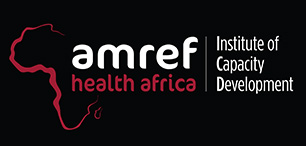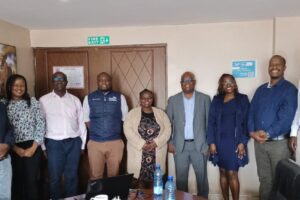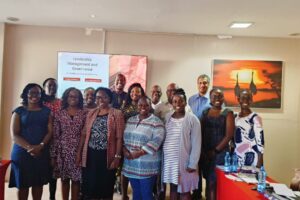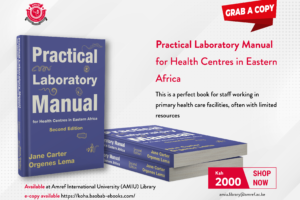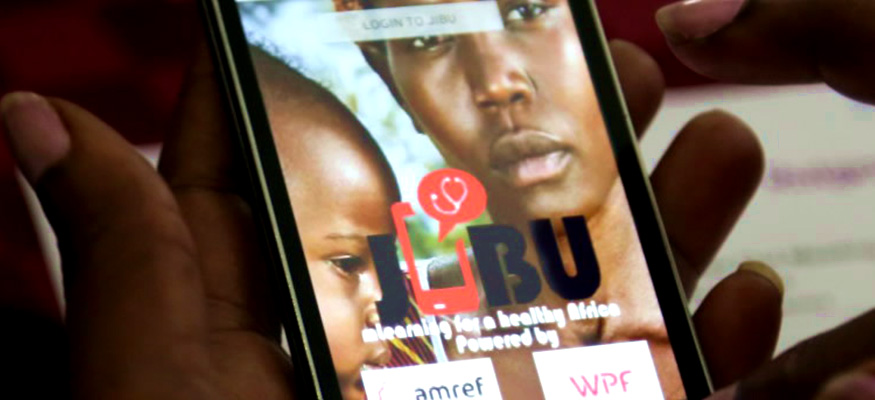
M-learning gives Kenyan Nurses Scalable Continuing Education
There is “no health without a workforce,” states a 2013 World Health Organization report on human resources for health. Common challenges faced by the health workforce in developing countries include acute shortages, skills-mix imbalances, retention, motivation, and limited access to education and training. Despite research demonstrating a clear link between health workforce density and the improvement of key health indicators, the health workforce is all too often overlooked. Many developing countries are now also faced with the “double burden of disease,” fighting both the familiar communicable diseases such as malaria and the growing incidence of non-communicable diseases caused by changes in lifestyle.
Innovative Approaches
To tackle these challenges, policy makers are adopting innovative approaches such as distance learning and the use of technology. Amref Health Africa, an international African organization based in Kenya, has been using the technology of the day to build the capacity of health workers across sub-Saharan Africa through channels such as radio, eLearning and mobile learning, known as m-learning.
Jibu: The Mobile Nursing Education App
As Amref Health Africa’s eHealth Programme Manager, I have the pleasure and privilege of taking “Jibu,” a pilot project for a mobile nursing education app, and expanding it into a full-scale program in Kenya over the next three years. In Kenya, health workers are required to continuously update their skills to remain relevant in the ever changing health landscape. To maintain their professional licenses each year, they are required to accrue continuing professional development points from accredited institutions The points can be earned through attending conferences, publishing research and taking courses, for example. Jibu offers a cost-effective way to make continuing education widely available to Kenyan nurses who are able to use their own phones to access the content.
The Fruits of Jibu
I’m also convinced that it will be invaluable from a knowledge transfer standpoint. Joyce Christine, a Tutor at Iganga School of Midwifery with whom we worked on the pilot project, wrote:
Jibu will provide an opportunity to impart knowledge to the younger generation that will be taking over from the older midwives. It has also been an eye opener as tutors have been grappling with how to send information to (student) nurses who are out in the field, but they have now finally found a solution that will make this possible.
Another Tanzanian nurse we asked to evaluate Jibu at the end of 2014 wrote:
Since I joined the training and installed the Jibu application on my mobile phone, I have been able to access the materials every day especially in the morning before I start to work and in the evening before I go to sleep. I have realized that learning is very important as it reminds me of some terminologies and other important health tips which enable me to gain more confidence to attend patients.
Over the next three years, support from the Elsevier Foundation will help us to evolve the program further by developing local capacity to create pedagogically sound m-learning content. This is critical for the sustainability of the program. We will also collaborate with the Nursing Council of Kenya to align our continuing education framework, ensuring that points can be awarded to the nurses who enroll on the Jibu platform. In addition, given the scarcity of research in this area, we will evaluate the effectiveness of Jibu as an m-learning intervention in sub-Saharan Africa.
Although other issues such as bandwidth and infrastructure offer compounding challenges, we believe this is a critical way to empower Africa’s nursing. When we were evaluating Jibu, a student nurse in Kenya shared her thoughts on the impact:
We are in a remote area. In a rural setup, it is hard to get a library where a nurse gets access to information, and at the same time the nurse’s time is limited because they are mostly handling the needs of the community. Getting updates is hard. I would say that the best way for a nurse in such a setup to access information is through the mobile phone. However, the other challenge is limited network. Nevertheless I think mobile phones are the easiest and cheapest mediums of getting information in the rural setup.
The mobile phone provides an excellent opportunity, and with Jibu and the work of our team, innovation has become Amref Health Africa’s core business to tackle the crisis of human resources for health.
